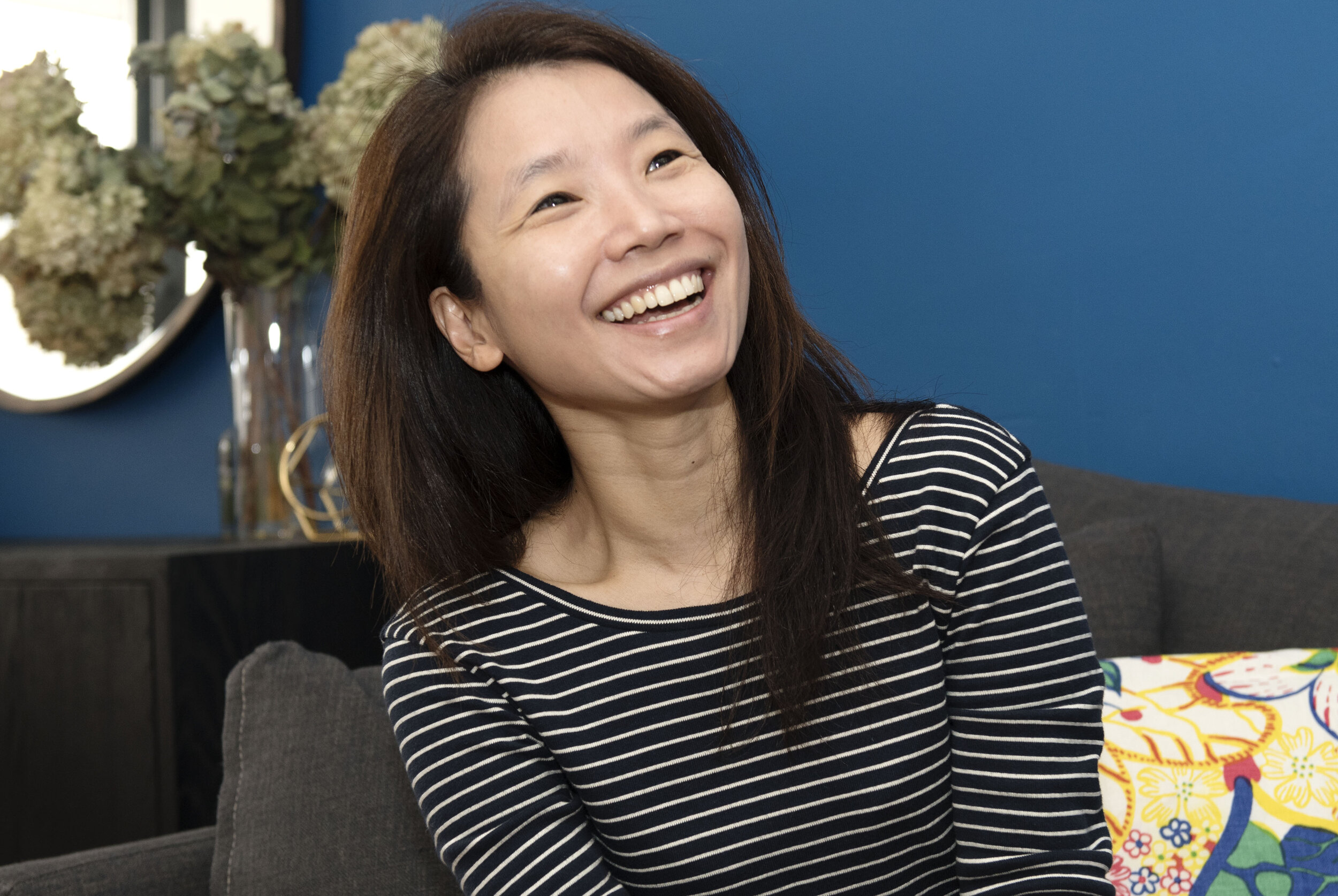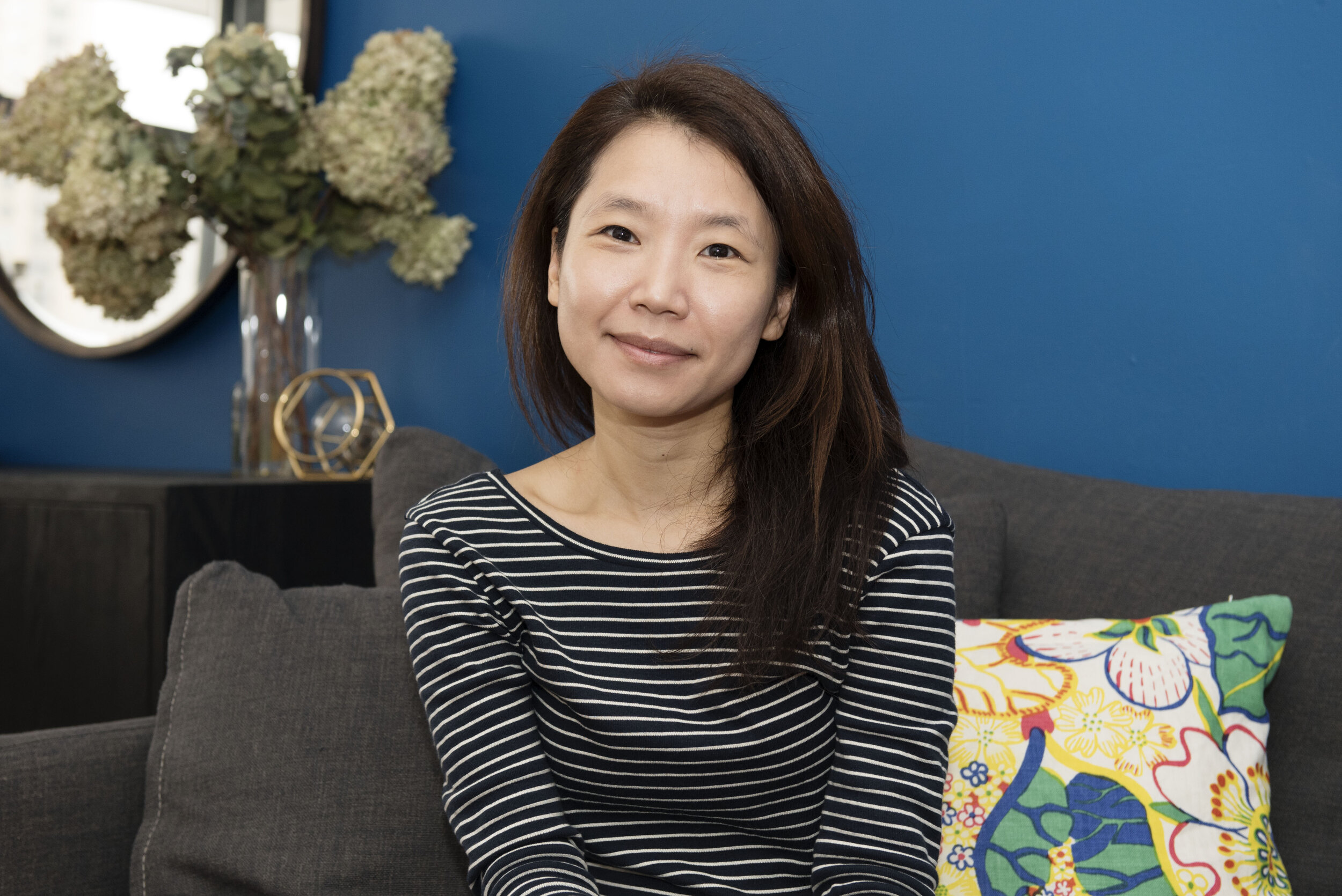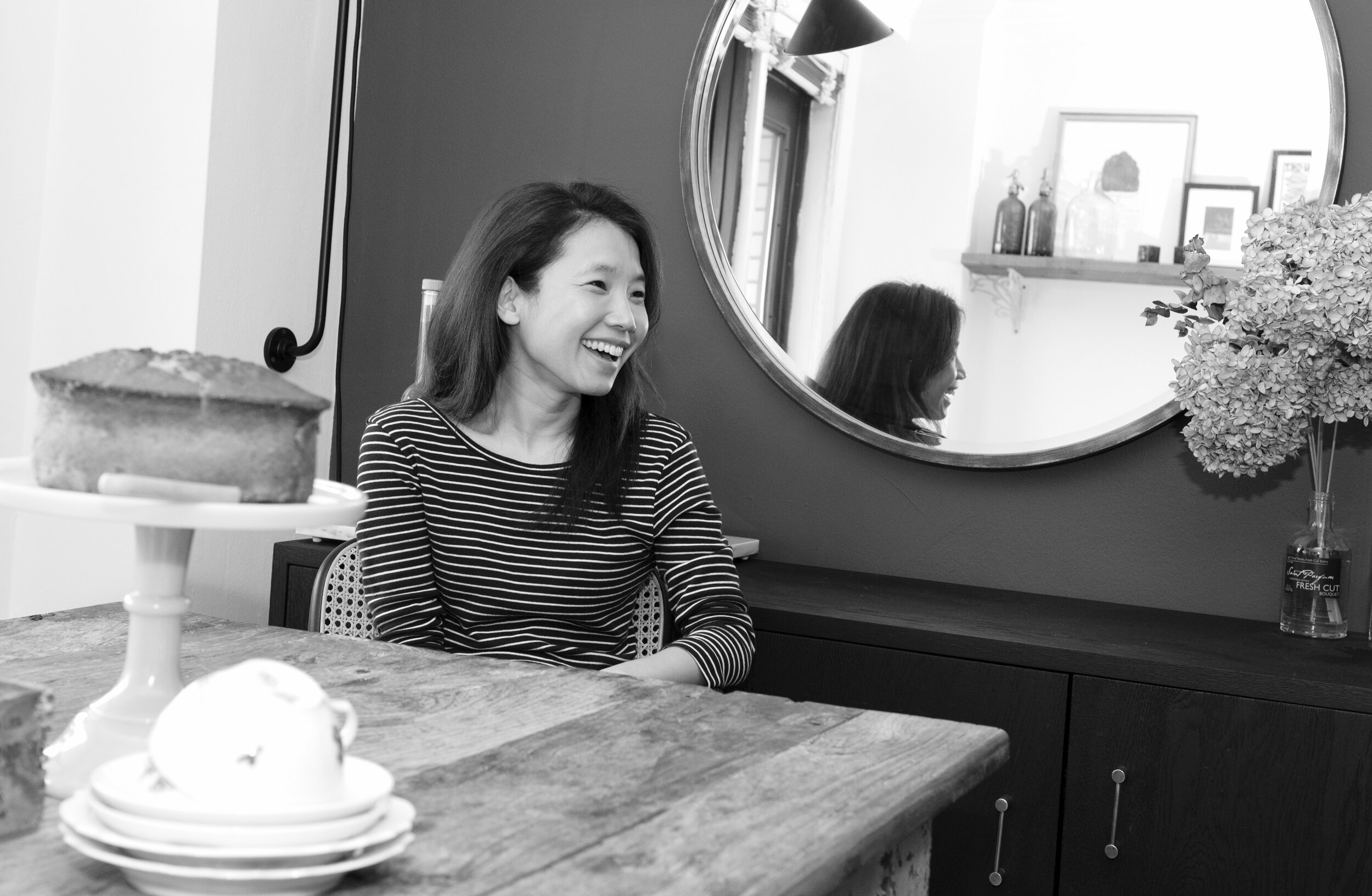Jee-Won Yang
Finance is such an elusive subject to most of us, and women in finance feels like another subject all together. Investment banker, Jee-Won Yang, sheds a light on the topic for us as well as sharing some tips she has on staying sane and creative in her downtime …
Do you remember your first week in New York?
Yes, I do. I came here for my job back in 2004. I work in finance and had been living in London for a year studying. It was July 4th because that’s when all the ‘first years’ start and do two months of training.
What made you move from London?
I liked it there but my family is in the States so I thought it would be easier for me. I also thought if you start in finance in New York you can always move to other cities, but if you start somewhere else it’s could be more difficult to come to New York.
I came here and was pretty scared. I was very shy, I guess a “typical” Asian person, pretty passive. I wasn’t very empowered in any way so a lot of my friends, especially my male friends, were like, “You’ll probably only survive a year on the trading floor and that’s OK.”
That’s so condescending.
It’s been almost twelve years now so I’m very proud of myself. But when I first arrived New York was a scary place, I was clueless but knew that I could work hard.
Were you working crazy those first few years?
I was but I also built a lot of friendships in that time because we worked such long hours together. It’s kind of like school because we have Class of 2004, Class of 2005 etc ... I’m still in touch with a lot of those people from when I started.
It was hard but it was fun at the same time because you learn so much. I do think I stayed at my job because I had a really good boss. He left a few years ago but we’re still friends. I think that’s why the first three years weren’t too bad.
What was it like being in New York at the beginning?
The city itself wasn’t so overwhelming because I grew up in Seoul, which is even crazier than New York in terms of the number of people and the traffic. I did enjoy New York a lot because I love taking photos and I used to take my camera everywhere.
It was amazing experience. The culture New York has to offer, like going to galleries and museums is amazing. Even though the job was very demanding and I worked at least one day a weekend I still managed to go out and see a lot of the city.
What do you do in finance? I just hear “finance” and I don’t know what that is.
My dad doesn’t even understand what I do. Within finance there are different departments and what I do is help companies raise money. Companies can raise money by issuing stock. I don’t do stock but I do bonds, which is kind of like a contract, like a mortgage. It’s a contract between the companies and the investors basically helping the company to borrow money from investors.
I write contracts that are a little bit more involved in terms of tax and accounting stuff but also it’s a contract that helps the company raise money with certain objectives. So if you borrow money from the bank for a mortgage your credit rating goes down, same with the company’s. I do something with bonds that make them have ‘equity like; features, it’s called a hybrid. Basically what I do is create very funky bonds.
[Laughs]
That’s what I say in my Instagram profile because no one understands. It’s bonds, but it’s very funky.
“There’s this feeling that because you’re in finance you have to be a certain way or dress a certain way. Be true to yourself and be comfortable, I think that’s really important because otherwise it’s not sustainable.”
Why did you go into finance?
Right after I graduated college with an economics degree I was doing research for a university because I thought I wanted to do a PhD. I was doing that for two years and it was very lonely.
That’s why I went to London. I did a Masters in finance for a year because I wanted to switch to something that was more in the private sector. Back then I thought I wanted to do consulting. They called it Litigation Consulting. There’s a lot of data analysis so it was very similar to what I did before in research but it’s still the private sector.
I wanted to do that so I was looking for a degree that was short and fast, a one-year degree and I always wanted to live in Europe so I applied for a few schools and one of them was in London.
I had no idea at the time but in the program I signed up to everyone wanted to be an investment banker. That’s kind of how it all happened. There wasn’t anything planned. I never thought; “I really want to be an investment banker and work on Wall Street.”
It sounds like you’ve always been creative on the side. You have your Instagram now. What led you to start it?
I started a blog when I moved to London. My parents were living in San Francisco at the time and I was very close with my mom so it was my way to show her what I was doing every day and I like to take photos. That’s how it all started.
As a student you have a little more time so I used to take photos and write what my day was like, stuff like that, all in Korean.
Now Instagram is easier for me because it doesn’t take a lot of time. It’s a way of having an outlet without having the commitment of a blog. Instagram is just tidbits of your life and I like to go back and see what I was doing a year ago. You have this wave of memories coming at you. I wanted to have some way to record what I did. I do have a photographic memory so having a photo to me is very important because it brings different memories of that day and what happened.
What about cooking? You said that you didn’t cook when you were younger so how did you get into that?
It kind of started in a sad way. My mom passed away in 2006 and she was always a very caring mom, she would do everything for me.
When I moved to New York my parents moved here as well because my dad was retired. After two years my mom passed away and my dad had always been taken care of by her. He didn’t know how to cook at all so I had to help him out.
There’s nothing tangible about my job, it’s just a piece of paper and money exchange so it’s always nice to come home and chop something or do something with my hands.
Being in New York it’s really easy to go out and eat, but for me the process of cooking and being in the kitchen is so nice. It feels like I’m in control of my life in a way.
The fact that you have a space big enough to entertain people is such a rare thing in New York. It’s so nice to take advantage of that. Did your dad get better at cooking?
No. [Laughs] He can only cook for himself to survive.
Would you ever go back to Korea?
I tried living in Hong Kong to see if I would ever want to go back to Asia. I’m sure now it’s very different, I was there from 2006-2008 and being a female in finance wasn’t a great experience there.
Culturally I feel more comfortable here. When I first arrived though it was difficult. I couldn’t understand the humor. That was the biggest gap. There’s a different sense of humor.
I do like the New York mentality of people doing their own thing. In Korea it’s all about being involved in everybody else’s lives.
What’s it like being a female in finance here?
There are a lot more females than there used to be. There’s definitely female leadership and women are very cognisant of how far we’ve come since the 1980s. So I think we try to make sure that the experience for younger female employees is actually improving.
It’s still very male dominated, but we always try to make sure that there’s good representation of females especially when we recruit.
I don’t really feel like there’s any difference in treatment between men and women. Where I work, at least, I feel very comfortable.
What’s the best piece of advice you could give?
There’s this feeling that because you’re in finance you have to be a certain way or dress a certain way. Be true to yourself and be comfortable, I think that’s really important because otherwise it’s not sustainable.
I make certain sacrifices professionally because I do like to have a sustainable life. If that means I’m having breakfast in the morning and I’m going into the office a little bit later than other people, people that I compete with for compensation, I made that choice because it’s important for me to have that longevity.
I think that’s really important, especially in finance, because when you first start you have such a short period of time that you can dedicate to yourself.
In finance we have a saying; “It’s a fire drill”. Everything needs to be done five minutes ago. I tell my juniors that there is no such thing as a fire drill, it’s only finance, no one’s dying. Just take a step back and calm down. Don’t let people dictate how things are supposed to be done.


Do you have any favorite places to eat in city?
I like Little Owl in the West Village. It’s good food and comfortable, nothing too fancy.
Downtown there’s a wine bar called Terroir. I really like that place. Around Union Square I like those tiny little Japanese restaurants on 9th and 10th streets between 1st and 3rd avenues. There’s a place that just serves Japanese curry.
Where do you like to take out of towners?
I like the High Line. When I lived in Tribeca I loved it by the water. I always tell people they should walk over the Brooklyn Bridge. That’s really fun.
If it’s summer and the weather is nice I love to take people to the roof at The Metropolitan Museum. Typically I just take them for a walk around and along the way go stop to eat.
What does New York mean to you?
It’s home for me now. Friends always ask me, “How can you stand living in the city?” I don’t think people understand that it’s actually a very liveable city. The reason I say that is because it can be as extravagant as you want and it can be as grounding as you want. There are so many places where you can still have a meal under $10 and I like the fact that the city allows you to do that.
Photography by Stephanie Geddes ©


